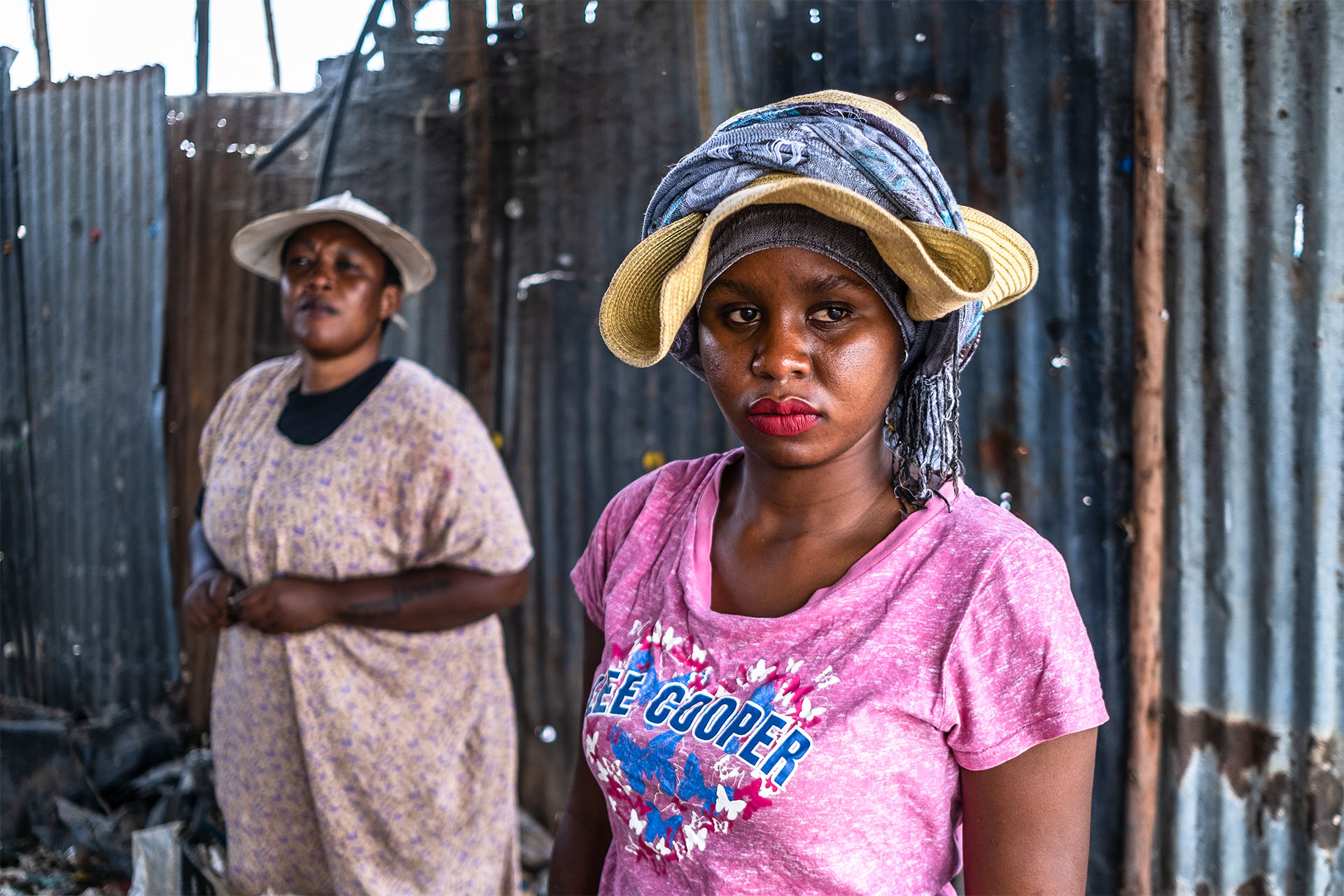En route to the Dandora dumpsite one April morning, a cloying odour seeped into the car before we’d even locked eyes on the mountains of waste. As I pulled my flimsy surgical mask up, the driver hastily shut the windows. I wasn’t surprised, exactly. In interviews prior to this reporting trip, people familiar with Kenya’s largest landfill often mentioned the acrid smell – at once overwhelming and all-consuming.
“Don’t make a big deal out of it,” cautioned Eriss Khajira, a journalist who I was working with on this story. She grew up on the edges of the dumpsite (and now makes films about those who live there).“They’re stigmatised enough.”
It was good advice. The world’s estimated 20 million waste pickers spend long days bent over, picking up and sorting waste discarded in streets and dumpsites. They’re among society’s most essential workers, yet also represent some of the most marginalised. They earn very little (in Kenya, $2.50 on a good day), have no social protection and are frequently harassed by authorities.
And then there’s the job at hand. Every day they handle waste with no gloves or masks and are exposed to contaminated and toxic materials. Research by the United Nations indicates how this exposure can result in cancer, breathing problems and skin infections. Yet little attention has been paid to how it might be impacting reproductive health, say scientists and environmental campaigners. Although estimates vary, studies show this informal workforce is often mostly women.
While we chatted to waste pickers on the edge of Dandora – a makeshift hut protecting us from the hot sun – we were never alone. Marabou storks (huge, vulture-esque birds with dagger-like beaks), flew above; a one-eyed dog came up to say hello and a haze of flies swarmed around us. After a couple of days, I was congested and fighting off severe headaches. Yet many of the women we spoke to had worked on dumpsites for decades – often starting as children.
In interviews, 65% of waste pickers said they suffer painful and irregular periods. As I write in my story, published with VICE World News last week, there is no definitive proof that the reproductive health problems waste pickers face are caused by exposure to toxic chemicals. But it’s highly likely to be an underlying factor, according to several scientists I spoke to.
“We know people should not be near those dumpsites,” said Judith Onyango, a researcher at Nairobi University. While visiting local health facilities, I stumbled on Onyango conducting interviews. She is leading a study into how air pollution impacts the brain development of children living in Dandora, the Nairobi suburb home to the dumpsite.
“It’s very possible reproductive health is being impacted but it’s an area which has not been properly explored,” she said. “Data is what speaks. And the data is not there.”
Throughout my two-week trip, comments were frequently made about waste pickers’ clothes or cleanliness – often by those in positions able to help this vulnerable population. Yet two of the women I met, Winnie and Joyce, were far from embarrassed about where they worked. Each morning, they turned up – Joyce’s oversized floppy hat covering her face from the sun, Winnie in black denim jeans exuding confidence – and kindly introduced me to their colleagues, explaining the rules of this vast landscape as they went. Both said they suffer from irregular periods and have been told by doctors it’s connected to the dumpsite.
But they continue to sift rubbish with their bare hands, hunting for bottles, metal, wood and anything else of value – and do so proudly. As the backbone of waste and recycling industries, they understand how important their work is. They simply want to feel safe while doing it.



